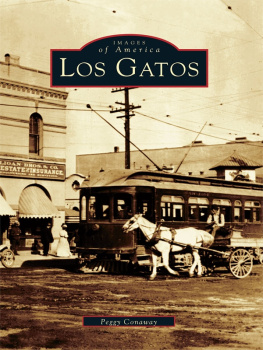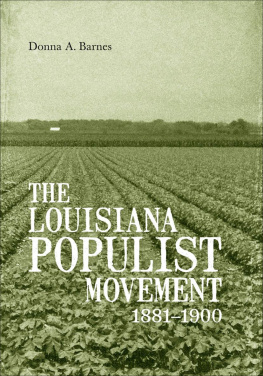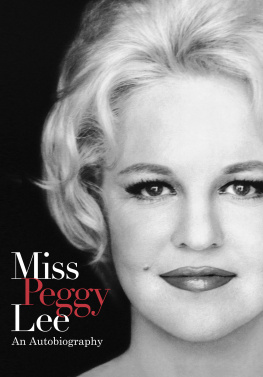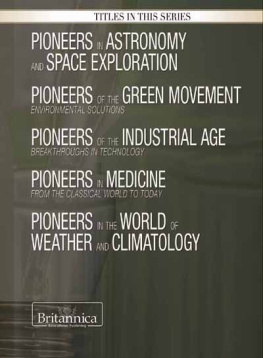www.upress.state.ms.us
Designed by Peter D. Halverson
The University Press of Mississippi is a member of the Association of American University Presses.
Photographs Gabriella Mills
Copyright 2013 by University Press of Mississippi
All rights reserved
Manufactured in the United States of America
First printing 2013
Library of Congress Cataloging-in-Publication Data
Frankland, Peggy.
Women pioneers of the Louisiana environmental movement / Peggy Frankland, with Susan Tucker.
p. cm.
Includes bibliographical references and index.
ISBN 978-1-61703-772-6 (cloth : alk. paper) ISBN 978-1-61703-773-3 (ebook)
1. Women environmentalistsLouisianaBiography. 2. Environmental protectionLouisiana. 3. Environmental justiceLouisiana. 4. LouisianaEnvironmental conditions. I. Tucker, Susan, 1950 II. Title.
GE55.F73 2013
304.20925209763dc23 2012038297
British Library Cataloging-in-Publication Data available
To my grandchildren, Nicholas, Logan, Alexis, Cade, and Addie, and my great-grandchildren, Robert and Madeline, and those who may follow
CONTENTS
PREFACE AND ACKNOWLEDGMENTS
Louisiana is to the environmental movement what Selma, Alabama, is to the civil rights movement.
BILL MOYERS
This book presents a history that touches countless Louisiana citizens today in the early twenty-first century, as well as the memory of their ancestors and the future of their descendants throughout the nation. Yes, these stories reflect a commitment to make safe the land, air, and water of a certain place in time. But they also tell of how caring and active leaders are made, how families lived in the past, and how we might best teach children that they may teach their children how to live in the centuries ahead.
Like protecting the treasures of our environment, writing a book is an act of faith that requires daily work, constancy, and, most of all, community. This project was a huge undertaking that could not have been accomplished without the support of many people. I thank first the Louisiana Endowment for the Humanities, a state affiliate of the National Endowment for the Humanities, whose grant made parts of the work possible. The opinions expressed in this book, of course, do not necessarily represent the views of the Louisiana Endowment for the Humanities (LEH) or the National Endowment for the Humanities (NEH).
Next, and most critically, I thank key editors and writers for this project, Amy Clipp and Susan Tucker. This project would not have happened without their involvement and steady guidance.
I am also grateful to the thirty-eight women and eight men who graciously shared their expertise, insights, and experiences; allowed Jennifer Abraham Cramer, Sharon Barrow, and me to interview them for this project; and gave permission to publish the results in this book.
Words cannot convey adequately and in such a short space how deeply appreciative and indebted I am also to nine gifted individuals who volunteered their expertise and invaluable time to serve on an advisory committee. Their involvement and generosity were essential to the success of the project, and although the process has taken many years, they have remained staunch supporters. Their encouragement and involvement helped me maintain my own interest in the project. First in this list is, again, Amy Clipp of New Orleans, who brought her skills as writer and editor to the project. In the late 1990s one night at a party, we discussed an idea I had about writing a book about women environmental activists. Amy surprised me the next week when she called and volunteered to work with me on a yet undeveloped plan. That telephone conversation was the seed planted that motivated me to move forward with this project. She also taught me about using my time wisely, but most of all she taught me about tenacity. I deeply appreciate her patience, skill, and good advice.
At that same party, I also talked to Barbara Ewell, professor of English at Loyola University in New Orleans. My initial thought about a book was to focus on different women activists around the nation. It was Barbara who suggested that there were so many wonderful women in Louisiana that I should write the book about them. Barbara also suggested I contact historian Mary Hbert Price, director of the T. Harry Williams Oral History Center at Louisiana State University (LSU). It was Mary who suggested that the book be an oral history of the women so that their stories would be preserved for future generations. Mary trained me to interview the subjects, loaned LSU equipment for interviewing and transcribing, and furnished various supplies. Her staff also transcribed many of the interviews. Mary brought national attention to the project, then still in its infancy, by making it possible for us to speak at the National Oral History Associations 2001 Annual Meeting, Bearing Public Witness: Documenting Memories of Struggles and Resistance. Under Marys direction at the Williams Center, she also allowed the talented Jennifer Abraham Cramer to interview many of the subjects. Jennifer approached the developing project with enthusiasm, boundless energy, and total dedication. In 2004, after Mary retired and Jennifer became director of the Williams Center, she continued to promote the project by conducting workshops and presentations at LSU. In 2011, she was responsible for my participation in the Listening to Louisiana Women Symposium, which featured many of the states women activists and their oral history projects. Jennifer also interviewed Wilma Subra for the books conclusion and assisted in editing the interview. Jennifer is an amazing young woman.
Susanne Dietzel, former director of the Womens Resource Center, Loyola University, New Orleans, Louisiana, and now a professor at Ohio University, is an accomplished author and researcher. Susanne always allowed the advisory committee the use of the Womens Center conference room for meetings. Along with Barbara Ewell, Susanne was responsible for arranging a presentation featuring three of the women activists at the National Womens Studies Association (NWSA) conference in New Orleans in 2003. At this stage Barbara Ewell once again offered both professional and personal advice. She knew firsthand about environmental issues since her fathers farm, adjacent to Devils Swamp, north of Baton Rouge, Louisiana, was contaminated with toxic waste. Gabriella Mills, photographer and exhibit designer from Lafayette, Louisiana, donated her remarkable talents, capturing the beauty of the women, their inner strength, and true grit in her photographs. Thanks Gabe. You did the women proud. Marylee Orr, executive director of the Louisiana Environmental Action Network, is not only featured in the book but also contributed immensely to the project. She held a fund-raiser in 2002 that celebrated the womens work and provided key funds for the project.
Jerry Speir, former director of the Tulane Environmental Policy Institute, New Orleans, Louisiana, brought his many years of personal experience as an environmental advocate to the book project. As an attorney, his legal expertise was very important. He also provided thoughtful edits and support throughout the process. Susan Tucker, archivist at the Newcomb College Institute of Tulane University, brought her experience as an author. Her book,








